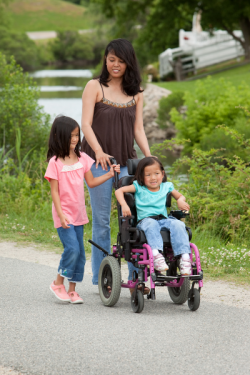
As the Delta variant continues to spread and caseloads continue to rise, we can’t lose sight of the fact that too many families in our communities continue to face significant ongoing hardship. And children are paying a steep price. Previous relief measures provided some important help, like stimulus checks and relief for renters, but the reality is that the recovery is uneven and incomplete. While the economy is beginning to recover, many are still struggling to make ends meet, especially Black, Indigenous, and People of Color (BIPOC).
After years of setbacks for families, the forthcoming recovery legislation presents an opportunity for our Congressional delegation to do right by Arkansan children, who face some of the highest rates of poverty in the nation. And we can cover the cost of these investments by ensuring that profitable corporations and the very wealthy once again pay their fair share in taxes.
As the Household Pulse Survey data indicates, households with children are more likely to experience difficulty covering basic living expenses than those without children. And this reality is even more stark for BIPOC families who disproportionately work low-paid jobs and face worse employment prospects because of systemic discrimination in education, housing, criminal justice and elsewhere.
For children, this type of financial hardship creates problems not only now but also in the future. Research has linked poverty and economic stress with long-term negative impacts on health, education, career and financial stability. We know that access to regular meals, stable housing, and high-quality child care can make all the difference in setting children – and their communities – on the path to a brighter future.
The good news is we know exactly what to do to address these issues. The proposed, federal American Families Plan would deliver long-awaited relief to Arkansas families and children by permanently expanding key tax credits, including the Earned Income Tax Credit and Child Tax Credit. Expanding the Child Tax Credit would reduce child poverty by 48 percent here in Arkansas by putting money directly in the pockets of families. The proposal also includes funding to make child care more affordable, create a paid family and medical leave program, reduce childhood hunger, and make health care more affordable.
In the past, many of the poorest Arkansas families and those with very low wages have been shut out from receiving the full Child Tax Credit. In Arkansas, 661,000 children, or 93 percent of all the children in our state – would benefit from this expanded tax credit, including 323,000 children whose families previously made too little to receive the full credit or were shut out entirely. Permanently expanding the tax credit would help many Black and Latino children with 120,000 Black kids and 80,000 Latino kids in Arkansas benefiting.
To cover the cost of these and other investments in our communities, the recovery plan raises revenue by asking profitable corporations and the very, very wealthy to finally pay their fair share in taxes. After decades of tax cuts overwhelmingly benefiting those making the most, this plan will increase taxes on less than 1 percent of all taxpayers nationwide and only 0.5 percent in Arkansas. Unlike most Arkansas households with incomes mainly from wages and salaries, the state’s wealthiest currently do not pay taxes on a large share of their income each year due to preferential tax rates on investment income.
The plan would also reduce incentives for multinational corporations to shift their profits and taxes overseas and modestly increase corporate tax rates that were slashed in 2017 with promises of significant economic benefits that never materialized.
We know what grows the economy: It’s investments in us, investments that ensure that everyone—no matter what they look like or which zip code they live in—can get the health care, housing, good jobs and other support they need to thrive. Not continued tax breaks for the wealthy and corporations.
